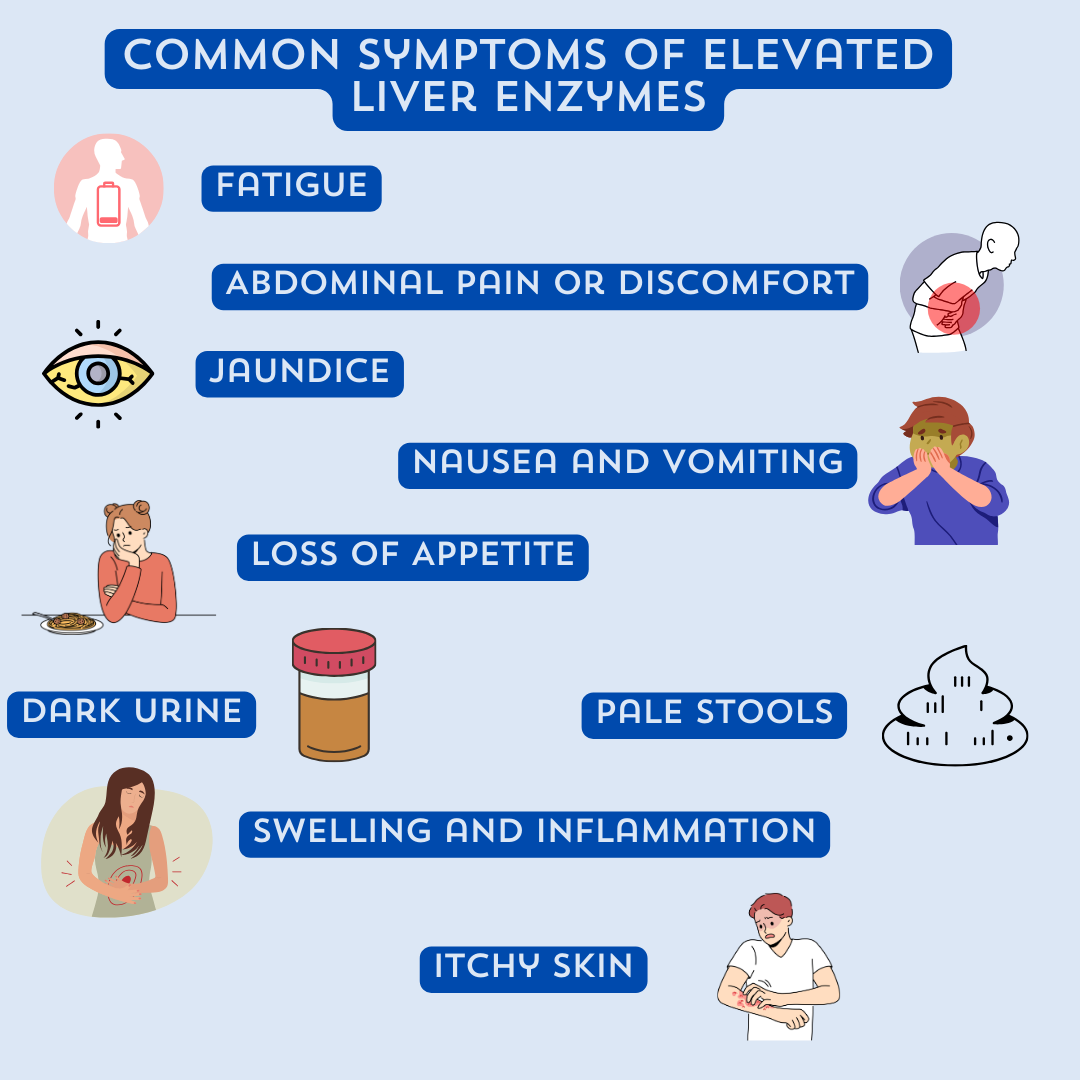Stress has become an unavoidable part of modern life, with many individuals grappling with its effects daily. While stress's mental and emotional toll is well-documented, its impact on physical health is equally significant. One area of concern is the liver, a vital organ responsible for numerous metabolic processes. Can stress cause elevated liver enzymes? This article aims to clarify this topic by exploring the latest scientific findings and shedding light on the potential connection between chronic stress and liver enzyme levels. By understanding this relationship, individuals experiencing high-stress levels can make informed decisions about their overall health and well-being.
What Is Chronic Stress?
Chronic stress refers to a prolonged state of psychological and physiological tension that persists over an extended period. Unlike acute stress, which is a temporary response to a specific event, chronic stress is characterized by ongoing feelings of pressure, anxiety, and overwhelm. It can result from various sources such as work-related pressures, financial difficulties, relationship problems, or health issues. When individuals experience chronic stress, their body's stress response system remains activated for an extended duration, leading to a range of physical and emotional symptoms. It is important to recognize and address chronic stress as it can have detrimental effects on overall health and well-being.
What Are Some Common Causes Of Chronic Stress?
Work-related Stress
Work-related stress is a common cause of chronic and psychological stress for many individuals. Factors such as heavy workloads, long hours, tight deadlines, and a lack of control or support in the workplace can contribute to ongoing stress. The pressure to meet expectations and perform well can take a toll on both mental and physical well-being.
Personal Life Challenges
Personal life challenges, such as relationship issues, financial difficulties, or caregiving responsibilities, can be significant sources of chronic stress. Balancing multiple responsibilities and dealing with life's ups and downs can lead to ongoing feelings of pressure and overwhelm.
Traumatic Events
Experiencing a traumatic event, such as a natural disaster, accident, or loss of a loved one, can have long-lasting effects on mental and emotional well-being. The stress associated with processing and coping with the aftermath of such events can persist for an extended period, leading to chronic stress.
Health Issues
Dealing with chronic health conditions or managing a serious illness can be a major source of ongoing stress. The physical and emotional toll of living with health challenges, undergoing treatments, and managing symptoms can contribute to chronic stress and negative health effects.
Lifestyle Factors
Unhealthy lifestyle habits, such as poor diet, lack of exercise, inadequate sleep, and excessive use of substances like alcohol or drugs, can also contribute to chronic stress, heart failure, and other detrimental health issues. These factors can negatively impact overall well-being and increase vulnerability to stress.
Environmental Stressors
Environmental stressors, such as noise, pollution, overcrowding, or living in high-crime areas, can create a constant state of stress. These external factors can disrupt daily life and contribute to ongoing feelings of tension and anxiety.
It is important to recognize the common causes of chronic stress and take steps to manage and reduce stress levels. Seeking support and treatment from a doctor or healthcare professional, practicing stress management techniques, and making lifestyle changes can help individuals better cope with and mitigate the effects of chronic stress.
Can Stress Cause Elevated Liver Enzymes?
The connection between stress and elevated liver enzymes has been a topic of interest in recent research. While the exact mechanisms are not fully understood, studies suggest that chronic stress may contribute to an increase in liver enzyme levels. When the body is under stress, it releases stress hormones that can impact liver function and metabolism. Additionally, stress-related behaviors such as unhealthy eating habits, alcohol abuse, or lack of exercise can further strain the liver. It is important for individuals experiencing chronic stress to be aware of the potential impact on liver health and take proactive steps to manage stress and support liver function.
Common Symptoms Of Elevated Liver Enzymes
Common symptoms of elevated liver enzymes include:
- Fatigue: Feeling excessively tired or lacking energy is a common symptom associated with elevated liver enzymes.
- Abdominal Pain or Discomfort: Some individuals may experience pain or discomfort in the upper right side of the abdomen, where the liver is located.
- Jaundice: Yellowing of the skin and eyes, known as jaundice, can occur when liver enzymes are elevated.
- Nausea and Vomiting: Elevated liver enzymes can cause digestive symptoms such as nausea and vomiting.
- Loss of Appetite: A decrease in appetite or a feeling of fullness after eating small amounts of food may be a symptom of elevated liver enzymes.
- Dark Urine: Liver enzyme elevation can lead to dark-colored urine, often described as tea-colored or brown.
- Pale Stools: Stools may appear pale or clay-colored due to reduced bile production caused by elevated liver enzymes.
- Swelling and Inflammation: Some individuals may experience swelling or fluid retention in the legs, ankles, or abdomen.
- Itchy Skin: Elevated liver enzymes can cause itching or a sensation of itchiness on the skin.
It is important to note that these symptoms can vary depending on the underlying cause of elevated liver enzymes. If you are experiencing any of these symptoms or have concerns about your liver health, it is recommended to consult with a healthcare professional for proper evaluation and diagnosis.

How Long Does It Take For Elevated Liver Enzymes To Return To Normal?
The time it takes for elevated liver enzymes to return to normal can vary depending on the underlying cause and individual factors. In some cases, if the elevated levels are due to a temporary condition or acute injury, the enzymes may return to normal within a few weeks or months as the body heals. However, if the elevated levels are a result of a chronic condition or ongoing liver damage, it may take longer for the enzymes to normalize, and in some cases, they may not return to normal at all. It is important to work closely with a doctor or healthcare professional to determine the cause of elevated liver enzymes and develop an appropriate treatment plan to support liver health and monitor enzyme levels over time.
Should I Be Worried About Mildly Elevated Liver Enzymes?
Mildly elevated liver enzymes should not be ignored, but they may not necessarily indicate a serious health issue. It is important to consult with a healthcare professional to determine the underlying cause and assess the overall health of your liver. Mild elevations can be caused by various factors, such as medication use, alcohol consumption, fatty liver disease, or viral infections. Your healthcare provider will consider your medical history, conduct further tests if needed, and provide guidance on appropriate steps to manage and monitor your liver health. It is always better to address any concerns and take proactive measures to maintain liver health, even if the elevations are mild.
How To Manage Liver Enzymes
Identify and Address Underlying Causes
The first step in managing liver enzymes is to identify and address the underlying causes. This may involve lifestyle changes such as reducing alcohol consumption, maintaining a healthy weight, and adopting a balanced diet. If medications or certain medical conditions are contributing to elevated liver enzymes, working with a healthcare professional to adjust medications or manage the condition effectively is crucial.
Adopt a Healthy Lifestyle
Maintaining a healthy lifestyle is essential for managing liver enzymes. This includes engaging in regular physical activity, eating a nutritious diet rich in fruits, vegetables, whole grains, and lean proteins, and avoiding excessive consumption of processed foods, sugary beverages, and saturated fats. Staying hydrated and limiting alcohol intake are also important for liver health.
Manage Stress Levels
Chronic stress can impact liver health and contribute to elevated liver enzymes. Implementing stress management techniques such as exercise, meditation, deep breathing exercises, and engaging in activities that promote relaxation can help reduce stress levels and support liver function.
Regular Monitoring and Follow-up
Regular monitoring of liver enzyme levels through blood tests is crucial to assess the progress and effectiveness of management strategies. It is important to follow up with a healthcare professional to review the results, discuss any necessary adjustments to the management plan, and ensure the overall health of the liver.
Avoid Self-Medication and Seek Professional Guidance
It is important to avoid self-medication or the use of unverified remedies to manage liver enzymes. Always consult with a healthcare professional who can provide appropriate guidance and recommendations based on your specific situation. They can help determine the best course of action and monitor your liver health effectively.
By implementing these strategies and working closely with a healthcare professional, individuals can effectively manage liver enzymes and support overall liver health.
Can Fatty Liver Disease Cause Elevated Liver Enzymes?
Yes, fatty liver disease can cause elevated liver enzymes. Fatty liver disease, also known as hepatic steatosis, occurs when there is an accumulation of fat in the liver cells. This can lead to inflammation and damage to the liver, resulting in elevated liver enzyme levels. The two main types of fatty liver disease are alcoholic fatty liver disease, which is caused by excessive alcohol consumption, and non-alcoholic fatty liver disease (NAFLD), which is associated with factors such as obesity, insulin resistance, high cholesterol, and metabolic syndrome. If left untreated, fatty liver disease can progress to more severe conditions, such as non-alcoholic steatohepatitis (NASH) or liver cirrhosis. It is important to consult with a healthcare professional for proper diagnosis, management, and lifestyle modifications to support liver health.
Does High Cortisol Cause Elevated Liver Enzymes?
High cortisol levels can potentially cause elevated liver enzymes. Cortisol is a hormone released by the adrenal glands in response to stress. When cortisol levels are consistently elevated due to chronic stress or certain medical conditions, it can lead to various physiological changes in the body, including increased glucose production, impaired insulin sensitivity, and inflammation. These effects can impact liver function and contribute to elevated liver enzyme levels. However, it is important to note that elevated liver enzymes can have multiple causes, and further evaluation by a healthcare professional is necessary to determine the specific underlying factors and develop an appropriate treatment plan.
Who Is More Prone To Have Elevated Liver Enzymes?
Certain individuals may be more prone to having elevated liver enzymes. Factors that can increase the likelihood include:
- Excessive Alcohol Consumption: Heavy and prolonged alcohol use can lead to alcoholic liver disease, which can cause elevated liver enzymes.
- Obesity and Metabolic Syndrome: Being overweight or obese, as well as having conditions such as high blood pressure, high cholesterol, and insulin resistance, can increase the risk of developing non-alcoholic fatty liver disease (NAFLD) and subsequently elevated liver enzymes.
- Diabetes: Individuals with diabetes, especially those with poorly controlled blood sugar levels, are at a higher risk of developing liver complications, including elevated liver enzymes.
- Viral Hepatitis Infections: Chronic infections with hepatitis B or hepatitis C viruses can cause liver inflammation and damage, leading to elevated liver enzymes.
- Medications and Supplements: Certain medications, such as statins, antibiotics, and some herbal supplements, can potentially cause liver enzyme elevation in some individuals.
It is important to note that while these factors may increase the likelihood of elevated liver enzymes, anyone can be affected. Regular monitoring and testing of liver enzyme levels and seeking medical advice is crucial for proper evaluation and management.
Conclusion
In conclusion, the connection between stress and elevated liver enzymes is a topic of growing interest and concern. While the exact mechanisms are not fully understood, research suggests that chronic stress may contribute to an increase in liver enzyme levels. It is important for individuals experiencing chronic stress to be aware of the potential impact on their liver health and take proactive steps to manage stress and support liver function. Lifestyle modifications, stress management techniques, and regular monitoring of liver enzyme levels are key in maintaining overall liver health. Consulting with a healthcare professional is crucial for proper evaluation, diagnosis, and personalized guidance on managing elevated liver enzymes. By prioritizing stress reduction and liver health, individuals can work towards optimizing their overall well-being.
Final Thoughts
Experience the ultimate in enzyme supplementation with Vitalzym Extra Strength by World Nutrition. This carefully formulated vegetarian supplement is packed with serrapeptase, bromelain, papain, and other potent ingredients to restore enzymes, boost immune health, accelerate recovery after exercise, and improve circulation. Elevate your well-being and embrace a healthier lifestyle with the transformative power of Vitalzym and other exceptional products from World Nutrition.*
Sources
- https://www.forbes.com/health/mind/what-is-chronic-stress/
- https://www.linkedin.com/pulse/workplace-stress-isnt-new-normal-how-address-mental-camille
- https://study.com/learn/lesson/environmental-stressors-concept-examples.html
- https://www.liver.ca/your-liver/
- https://www.betterhealth.vic.gov.au/health/conditionsandtreatments/liver-fatty-liver-disease
- https://www.cnet.com/health/stressed-out-and-exhausted-you-might-have-a-cortisol-imbalance/
These statements have not been evaluated by the food and drug administration (FDA). These products are not intended to diagnose, treat, cure, or prevent any disease.







